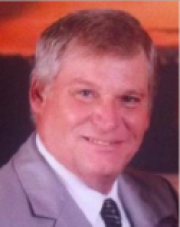Police Captain – Mentor, Mike Williams
Capt. Williams achieve professional success by working hard and overcoming obstacles he encountered in his life. When he was a freshman in high school, Capt. Williams realized he would not receive a good education in his inner city high school. So he took the initiative to apply to a magnet school and was accepted. When Capt. Williams graduated, he joined the Navy with the goal of becoming an air traffic controller. But he never received the training he wanted and left. He then decided to apply to become a policeman and was accepted as a cadet at the Tulsa Police Department. Tulsa requires their policeman to have a four-year college degree. He earned his while also working full time as a cadet while he was attending college. Because of his strong work ethic, he received his college degree in three and a half years. He then started as a patrolman and rose through the ranks to become a police captain. In his article, Capt. Williams discusses the various challenges faced by the police including their negative perception by many minorities and explains how he addresses these issues. His article will be of interest to anyone considering a career as a policeman or policewoman as well as everyone interested in learning more about how the police are trained to deal with a variety of situations.
Overview

I grew up in an inner city neighborhood in Saint Louis. We had a large family and not a lot of money. But my father understood the value of education and made all of his children get good grades. When it was time for me to go to high school, I spent my freshman year at our local high school where there were a lot of drugs and fights. I knew that I would not get a good education if I stayed there. So on my own I applied to a new magnet school and was accepted. I sold my parents on the idea of attending a school outside of my neighborhood and made the transfer. The good high school education I received at that magnet school gave me a good foundation that has been important.
Like many young people, I did not know what I wanted to do for a career after I graduated. So I joined the Navy to see the world. I was stationed on an aircraft carrier and wanted to become an air traffic controller. But they told me the Navy didn’t have an opening for air traffic controller training at that time but said they were short communication techs and directed me into that area. I later found out that I could have received the training I wanted as a controller and felt that I had been misled. So I left the Navy once my enlistment was up and went back to Saint Louis with the idea of joining the police force. But the economy in Saint Louis was not good at the time and their police department was not hiring. A sister who was living in Tulsa told me that their police department was looking for new recruits. I applied and was accepted as a police cadet. The Tulsa Police Department requires you to have a four-year college degree. This is different than many other police departments like those in the state of Texas where you are only required to have an associate’s degree. As a cadet at that time, you worked in the station forty hours a week and they paid for you to go college at night. I first got an associates degree at a local junior college and then my bachelor’s degree at a nearby four-year college. I worked hard and got my Bachelors degree in three and a half years. I chose marketing as my major so I would have another option in case being a policeman was something I later found I did not want to pursue as a life long career. Many people who want to join a police force get college degrees in criminal justice. But I have seen people find they do not like the job after a few years. Having a degree outside criminal justice gives you more options if you later decide to leave. Plus the particular skills you need to know to be a policeman are taught at the police academy and on the job. There is no disadvantage to not having a degree in criminal justice in my opinion if you want a career in police work.
Like all policeman I started out as a patrol officer. Patrol was interesting to me because you interacted with the public every day and encounter many interesting people. These experiences taught me a lot about life and to learn to respect people no matter what their circumstances. I quickly developed good communication skills and learned how to avoid confrontation. I also learned that in all the situations I encountered there were two sides to every story. Sorting through this conflicting information when you were interviewing people was important in order to be able to determine what actually had happened.
Patrol work also taught me empathy and compassion. For example, kids in poor neighborhoods often do what they see every day and not what they are told. Without some kind of intervention where they are around better role models, these kids will often develop the same bad behavior they observe in their neighborhoods. I learned to understand the dilemma they faced and wanted to help. One of the things I did with another patrol officer was start a Cub Scout troop in one of the housing projects. That program let the kids see there were alternatives and motivated a lot of them to choose a different path. Several of these Cub Scouts went on to graduate from one of the best magnet schools in the city and became strong men. I also tried to help these kids by coaching basketball at the YMCA and Salvation Army leagues.
During that time I became involved in a joint task force between the local and Federal government investigating hate crimes primarily carried out by a group of skinheads who were assaulting mixed race couples. We were able to arrest many of them and help send four to Federal prison and nine to state prison.
In 1993, I also participated in a fifteen-member robbery task force led by a Sargent who is now the Chief of Police. We got the calls directly rather than going through a dispatcher, which gave us a two to three minute advantage. This early information and the fact that we had fifteen people responding allowed us to do things like quickly set up perimeters at intersections two to three miles from the scene that would be a robber’s most likely escape route. The task force was successful and we captured several serial robbers who were active in the city at that time.
After three years as a patrol officer, I became a plain-clothes officer. We did investigations but not at the level of police detectives who handle homicides. I was then promoted to Corporal and was assigned to internal affairs. That department investigates other police for wrongdoing including such things as using excessive force and moral turpitude. I spent two years in that department and then took my test to become a Sargent. I passed and went back to patrol, the job that I enjoyed the most. As a patrolman, when you see something that is wrong you can immediately deal with it and often correct a situation before it gets out of hand. I am a self-motivated person and liked this feeling of independence. I was also able to work in all the police subdivisions of the city, which kept the work interesting because I was able to interact with people from all walks of life. And all parts of the city. While I enjoyed patrol, I wanted to advance my career and I took the test for Captain. I was next to last and was embarrassed. I didn’t retake the test for several years. But my wife told me that it was time to move forward and encouraged me take the test again. This time I passed and had one of the highest scores.
As a police Captain, you report to a Major who in turn reports directly to the Chief. Your job is to support the policies of the Police Chief by making sure all the people you supervise are moving in the same direction as the Chief and the Major. This means that you communicate department policies to your men and women by meeting with them and taking about implementing police policies. This two-way communication is important. As an officer you have to communicate with the people you supervise and listen to their problems. Being in command does not mean that you just give orders. As a Captain, I have a Sargent who is my right hand man and who works closely with me to see that everyone I supervise understands and carries out the department’s policies.
My responsibilities will be changing soon as I will be working in a more administrative role for a Major and for the Chief of Police at the main office.
Some of the Challenges of Being a Policeman
- When you are in police work, you are involved in everything from traffic stops to homicides. While seeing violence is always difficult, you know that you are doing good and protecting the public when you arrest someone who was hitting a mother or driving drunk.
- People in the community see you as an authority figure. But many minorities also see police as an enemy. It is important to be able to gain the confidence of these groups and do everything you can to change this perception. I try do this by showing respect to everyone I encounter. I always call them Sir or Mam. When I talk to them, I try to show that I am interested in what they have to say. If I stop someone and find out that I was wrong about what I suspected, I always apologize. New policeman sometimes do not understand how important just being polite and showing that you respect people is when trying to change the image of the police among minorities. Gaining the trust of minorities is even harder now given the recent incidents of police killing minorities in places like NYC, South Caroline and Baltimore. But this negative image is something our police department makes every effort to try and correct by showing the public that we can be trusted.
- To promote trust, I am always honest in my police reports and when testifying in court. For example, one time we approached a car with several black men. The men in the back seat ran while the driver sat and waited for us. When we searched the car, we saw crack cocaine in the backseat. We did take the driver to jail. But I did not see him have any drugs himself, testified to that fact and he did not receive a jail sentence. That man came up to me when I was in a store four months later after the incident and told me how much he had appreciated me being honest. I am sure he talked about his experience with other people in his community.
- Being a policeman can be stressful because of the situations you encounter plus you work on shifts at various times during the day. It is a job where the stress can sometimes affect your marriage and the work schedule can make it difficult to plan your personal life. I am fortunate to have married a wonderful woman who understands this and to have a daughter who is now starting college and son who is starting high school who are both good kids. Being able to balance your personal life is something anyone looking at becoming a policeman or policewoman needs to consider.
- You also see a lot things that are just plain sad. I always remember going to a nursing home where there were two elderly twin ladies and one of them had just died. When I went by the other’s room, I saw her talking in the mirror and her thinking that she was talking to her sister who had just passed.
- Everyone knows that a lot of crime is because of poverty. Some people feel they have few options to make a living. So when they see people like drug dealers who have money, some will gravitate to selling illegal drugs. It is not a good option and something as a policeman you can convey to kids in the neighborhood. Besides the legal consequences that can land you in jail for many years, drug dealers are in a constant battle for territory. This is what leads to a lot of shootings and fatalities making it a dangerous way to make money. We all need to encourage kids in these poor neighborhoods to pursue their education and not take a route that will lead them to a life of violent crime. But kids do what they see not what you tell them. So it is important as a policeman that you set a good example. As I mentioned, another officer and I started a Cub Scout troop in a public housing project and I coached basketball teams at the YMCA and the Salvation Army. So a good policeman understands that involvement in the community, especially where you can influence the direction young people take, can be as important as enforcing the laws.
Areas of Police Work
Being a policeman or policewoman gives you a lot of opportunity to work in areas that interest you once you have spent a few years on patrol, the place where all police must start. While I enjoyed patrolling the most, here are a few others for you to consider:
- Detective – plain clothes and uniformed
- SWAT
- Bomb Expert
- Horse patrols
- Canine Units
- Motorcycle Patrol
How to Prepare Yourself
- To join most any police force, you are going to have to earn at least an Associates Degree and in my city a four-year college degree. This requirement makes it important to study hard and get good grades in high school so you can be accepted to a college.
- When you are in high school it is important that you take English classes. Police need strong reading comprehension and writing skills. Writing is especially important in the robbery and homicide department where the quality of the police report is important to the successful prosecution of criminals. All detectives are good writers.
- You also need to be physically fit to be able to subdue a criminal. Develop a regular exercise program and good health habits.
- Your two or four year college degree does not have to be in criminal justice. Give yourself some flexibility and get a degree in something that would give you another career option if you later decide to not stay in police work.
- Get your first two years of college at a Junior College and save yourself some money. If you graduate from high school in Tulsa County, you can go to Tulsa Junior College for free. TJC’s credits will transfer to many four-year colleges. The two-year associates degree is enough to let you apply to departments in states like Texas, that have been growing rapidly. Getting into a department in a part of the country that you expect to have above average growth also allows you advance your career within the police department faster.
Summary
I have enjoyed my career as a policeman because I have been able to work in a variety of interesting jobs within the department and meet many interesting people throughout the city. I also have the satisfaction of knowing that I have had a positive influence on many lives. Because I was able to advance in the ranks and gain more responsibility, it has been a career that has allowed me to earn a good living and provide for my family. Retirement benefits are also good for most police department and often allow you to retire at an age where you are still young enough to be and in good health and enjoy retirement or start second career. If you are like me and enjoy dealing with people from all walks of life, have good communication skills and the ability to handle the stress that comes with police work, it is a good career for a young person to consider where you have the opportunity to advance based on your abilities and hard work.
US Bureau of Labor Statistics – Police and Detectives
The median annual wage for police and detectives was $56,980 in May 2012. The median wage is the wage at which half the workers in an occupation earned more than that amount and half earned less. The lowest 10 percent earned less than $33,060, and the top 10 percent earned more than $93,450.
The median wages for police and detective occupations in May 2012 were as follows:
- $74,300 for detectives and criminal investigators
- $55,270 for police and sheriff’s patrol officers
- $55,210 for transit and railroad police
- $48,070 for fish and game wardens
Many agencies provide officers with an allowance for uniforms as well as extensive benefits and the option to retire at an age that is younger than the typical retirement age.
Uniformed officers, detectives, agents, and inspectors usually are scheduled to work full time. Paid overtime is common. Shift work is necessary because protection must be provided around the clock. Because more experienced employees typically receive preference, junior officers frequently work weekends, holidays, and nights.







